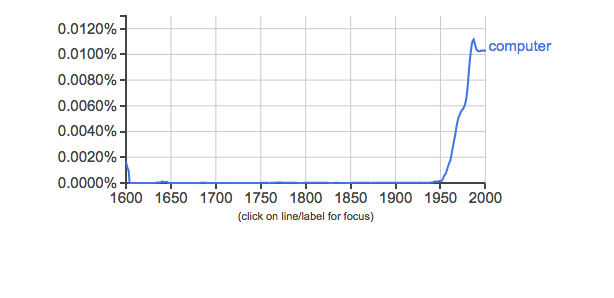“Garbage in, garbage out (“GIGO”) in the field of computer science or information and communications technology refers to the fact that computers, since they operate by logical processes, will unquestioningly process unintended, even nonsensical, input data (“garbage in”) and produce undesired, often nonsensical, output (“garbage out”).” – Wikipedia
This past weekend my wife and I went to dinner with some friends to a nice restaurant and had a very large meal. Amuse-bouche, appetizers, soup, salad, entree, dessert. It was a gamut of flavors. Pork belly, fish, butter, vinegar, cheese, charcuterie, chocolate and more. The meal was full of umami and je ne sais quoi. Our taste buds weren’t just satisfied, they were in overload. Good friends and nice food lead to great times.
Yet the following day I felt like garbage. In one sitting, I had consumed as many calories as I might in an entire day. My body was in complete shutdown. I was slow of thought and motion. I barely ate anything for breakfast, skipped lunch, and ate a small roll of sushi for dinner. I still felt full. The meal I had consumed the previous evening wasn’t garbage – far from it. Yet it was too much food, with so many flavors in one sitting, that I overloaded myself. The act of consuming so much rich food at one time was garbage behavior and made me feel as such the next day.
Human beings are not computers and do not function solely on logical processes. If that was the case, the field of Economics would be much simpler. But in many ways, the concept of GIGO in computing holds true for people too. If you consist on a diet made up solely of large meat lover’s pizzas, your body is going to breakdown and not be good for much.
“But Michael Phelps ate a large pizza for dinner every night!” True, yet he was also an Olympic athlete and burning thousands of calories a day. He also didn’t eat that way in the off season. If you’re winning Olympic medals you need 12,000 calories day. But if you’re reading this, you’re likely a desk jockey. Responding to emails, answering phone calls, assembling documents. The only time of the day you’re strenuously burning calories is while you’re at the gym. The rest of the day you’re likely fairly sedentary. As such, you need to eat in conjunction with how your spend your day. Consume too much fast food, processed goods, and fully-leaded soft drinks and you’ll end up overweight and feeling slow – not just physically but mentally as well.
Perhaps other people can perform well on whatever they eat, but I know that consuming different foods can impact my cognitive performance. For example if I step out for lunch and I have a cup of soup and a salad, I’m good to continue working at a high pace the rest of the afternoon. But if instead I eat Mexican – chips, queso, enchiladas – when I get back to the office I know I’ll be moving slower. Not just physically but also mentally. The way my body feels impacts the performance of my mind. When I put garbage into my body, the likely output is also going to be garbage.
You Are What You Eat Consume
But we’re more than just meat computers. We can adapt and change our bodies all on our own without being programmed. Phelps had to consume 12,000 calories a day because his body was a high performance swimming machine. He had taken the time and effort to craft his body for a particular purpose. The same goes for a sedentary office worker who is out of shape. By starting exercise and adjusting their diet, they too can change their body into a more highly performing machine.
But this is tough because somewhere along the way, the word “diet” was corrupted. Diet has come to mean something you do for a few weeks then go back to what you were doing before. It’s why so many people bounce from fad diet to fad diet. They start the newest diet fad craze – the watermelon sriracha diet – manage to lose 10 pounds then quit the diet and go back to eating like they were before. Four months later they’ve gained the weight back and start searching for another fad diet.
Really the word “diet” means something much more permanent. The word “diet” comes from the Greek diaita, meaning “way of life” or “regimen.” Even regimen is interesting. “Regimen” is Latin meaning “rule, guidance, government, means of guidance, or rudder.”
So a diet or regimen is something that should guide your way of life. This is important if you want to keep your body healthy. Exercise, and eating (most of the time) clean food will allow your body to stay prepared for physical activities that you find pleasing – soccer, basketball, rock climbing, Judo, dancing, whatever. You won’t be in Olympic caliber condition, but by following a diet, your body can be optimized for physical activity.
But there is more than one kind of diet.
Mr. Roboto
In case you aren’t aware of it, we can think (well most of us, most of the time). As lawyers, that’s essentially our job. People come to us with problems and pay us to think about them. Our mind then, is our most important tool we use day-to-day. All the legal search engines, practice management platforms, smartphones, and other whiz-bang googlywonks don’t mean squat if you can’t actually think your way through a problem.
Since we touched on etymology for a bit, and we’re talking about GIGO, let’s look at Google NGram for the word “computer:”
While there is certainly a spike in the 1950s do to the information revolution, you’ll notice that the word “computer” has been bubbling along in books since the 1600s. This is because “computer” originally meant “one who calculates,” from the word compute, from Latin computare “to count, sum up, reckon together.”
So all that’s to say, human beings are computers – we were the original computers. Only with the advent of ENIAC and its progeny were human computers replaced with electronic ones. Which would mean that humans are actually as susceptible to GIGO as computers – explicitly within the field of computation and calculation – but I think in other areas as well.
Plant A Tree
Just as we need a diet to keep our bodies physically fit, we need an information diet to keep our minds sharp. The concept of an information diet is not a new one, but was given much greater attention in 2013 when Clay Johnson wrote a book entitled Information Diet for O’Reilly Publishing. Johnson believes that, much like junk food leads to obesity and health problems, junk information kills productivity, efficiency, and worse, feeds ignorance (you can read his recommendations on starting an information diet here).
I haven’t read the book so I can’t speak to the research behind it, but given my own experience, it’s one of those concepts that just rings true. When I read long, in-depth articles on a topic, I can feel my mind working. It’s changing the way I think about a topic. It might inspire me to write something on my own, thinking aloud to see if I understand the topic at hand.
The reverse is also true. When I read “You Won’t Believe These Four Things That…” from some generic content farm, I don’t think of anything. There might be a dim inkling of interest – “Huh, how about that!” But there is no long term change in my thought or memory on the subject. For me to actually retain and learn about something, for concepts and ideas to actually change my own behavior or thought processes, I have to have depth.
I think this concept was recently well summarized in piece written by Tim Urban in a post entitled How Tesla Will Change The World at Wait But Why:
I’ve heard people compare knowledge of a topic to a tree. If you don’t fully get it, it’s like a tree in your head with no trunk—and without a trunk, when you learn something new about the topic—a new branch or leaf of the tree—there’s nothing for it to hang onto, so it just falls away. By clearing out fog all the way to the bottom, I build a tree trunk in my head, and from then on, all new information can hold on, which makes that topic forever more interesting and productive to learn about. And what I usually find is that so many of the topics I’ve pegged as “boring” in my head are actually just foggy to me—like watching episode 17 of a great show, which would be boring if you didn’t have the tree trunk of the back story and characters in place.
Yet I think for many of us, if we really sat down and examined our information diet, we would find that more often than not, we’re trying to add new leaves to a tree we don’t possess. Our minds are bombarded with an overabundance of emails, Tweets, viral videos, and more. Attention spans are narrowing and there is an emphasis on consuming information as quickly as possible. Doing so prevents us from putting forth the time and energy to actually engage with concepts in and tangible or meaningful way. As such, the amount of time we spend on substantive material that actually educates us falls off unless we make a concerted effort to seek it out.
And to bring it back to lawyers, that means that if your information diet consists solely of junk, then that means that there is a good chance that your mind is going to turn to junk. It’s likely offset to some extent by the legal work you perform, yet constantly consuming throwaway information without setting aside time for consideration and analysis will degrade your ability to focus on deep work. Which is a detriment, not only to yourself, but also to your clients.
So the next time you see that catchy article title, pause and think if you really want to read it. When you next look for a book do you look for something that you can learn from or pulp to fill your time?
Are you trying to elevate the quality of your thoughts or just blindly clicking forward on the next shiney, bright thing?















